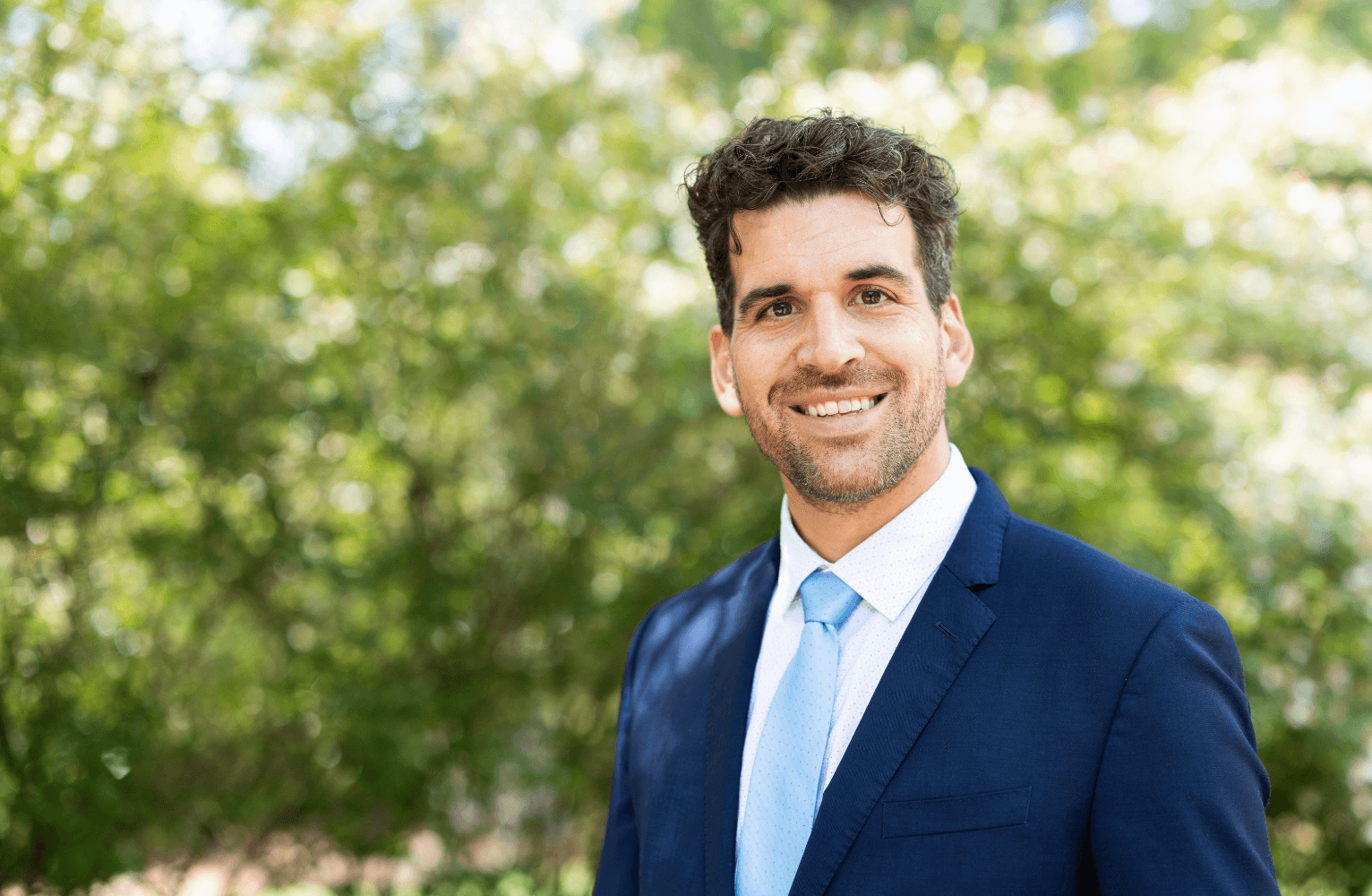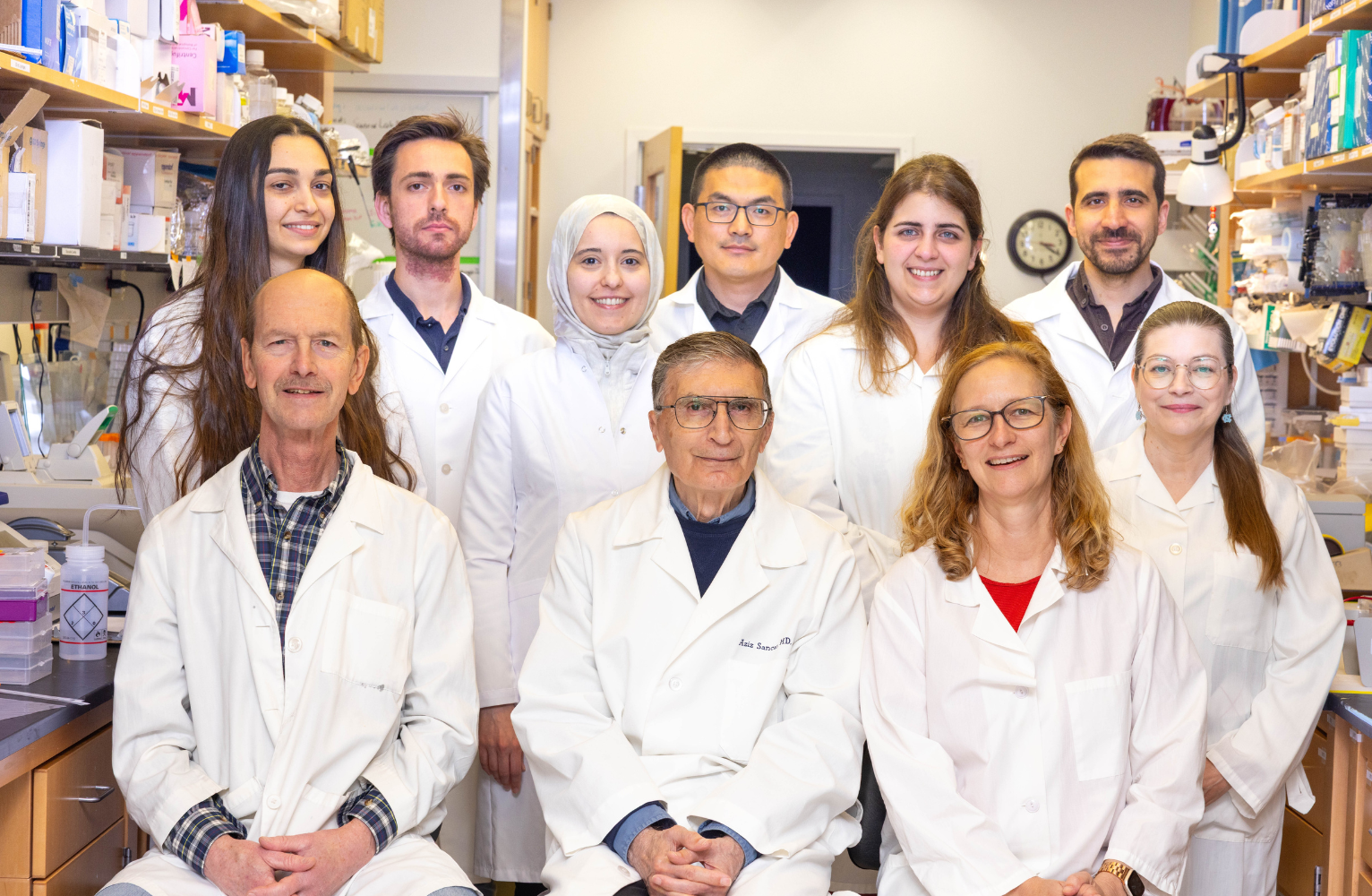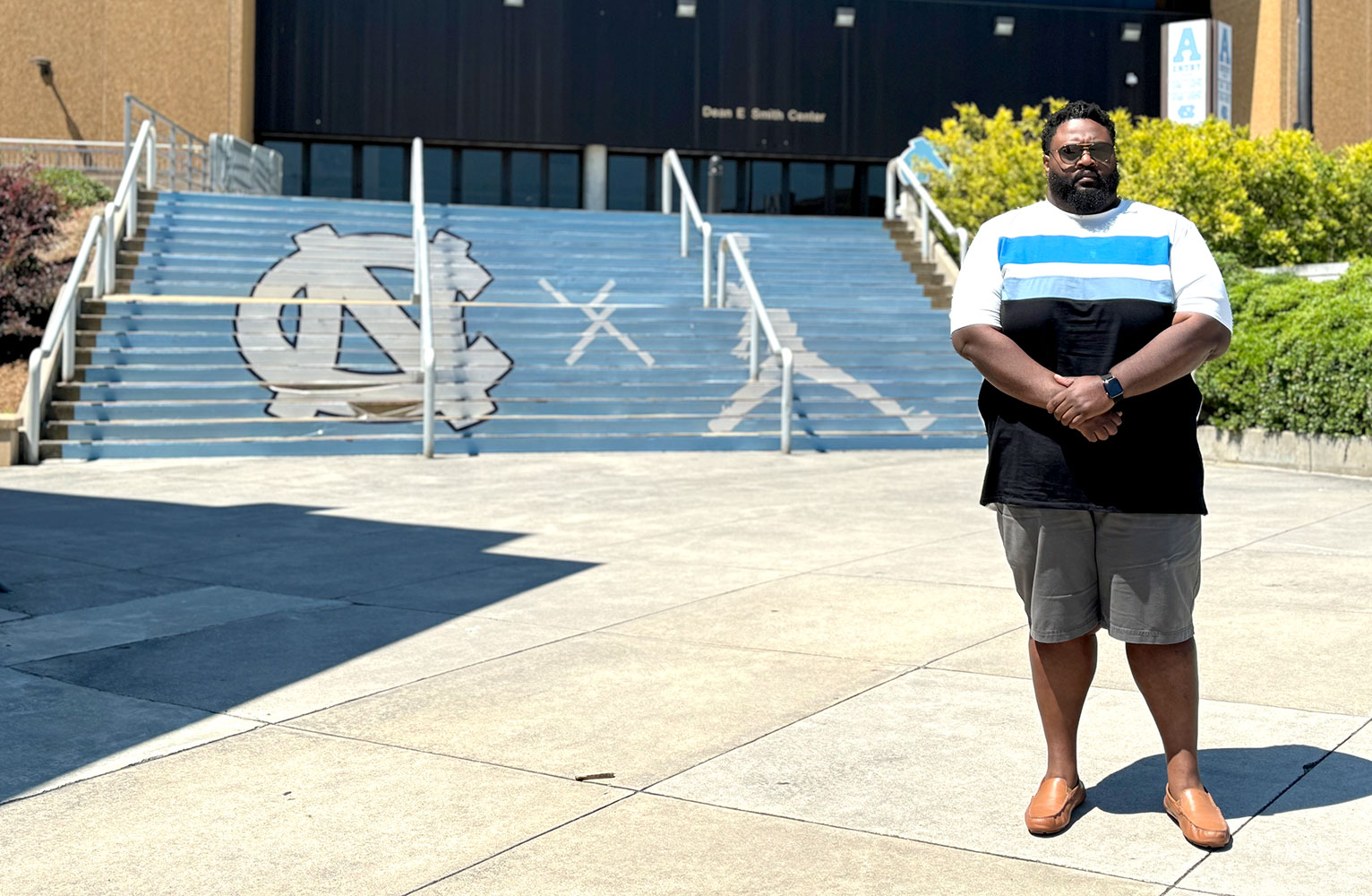
Brian Kuhlman, Oliver Smithies Investigator and professor of biochemistry and biophysics in the UNC School of Medicine, on his role as an academic inventor.
Brian Kuhlman was recently named a senior member of the National Academy of Inventors. This distinction recognizes faculty, scientists and administrators who have demonstrated success in patents, licensing and commercialization, and have developed technologies with the potential to make a significant societal impact.
Kuhlman has spent his career studying proteins. “From the beginning of my career I found them magical,” he said. “They can perform so many different functions within the body simply based on the unique shape that they fold into.”
Today, Kuhlman’s lab designs new proteins – working to create ones that will be useful in medicine or research. Each project in his lab targets a different function, but some examples include proteins that can be useful as therapeutics, by binding to other naturally occurring proteins and turning them off; and proteins that can be components in vaccines, by eliciting antibodies to protect against dangerous viruses.
What role do academic inventors play in introducing new technologies to meet real-world problems? What does this look like in your lab?
KUHLMAN: In general, researchers in academia are focused on basic science questions that are more removed from the clinic. Companies are much more risk averse when it comes to what they will research, because they need to develop products quickly and be profitable. Academics, on the other hand, typically have the freedom to explore new things that may fail. Because of this, academics often develop new foundational technologies that can then be licensed out, further developed and applied in the real world.
I’ve worked on several patents. The one that has progressed the furthest was a collaboration that my lab had with Eli Lilly & Company to design a new technology for creating an antibody – called a bispecific antibody – that can be used to treat cancer. This new antibody recruits immune cells to the site of the cancer so that the body’s immune cells can kill cancer cells. UNC-Chapel Hill and Lilly patented the technology in partnership, and several members of my lab, including a student, were named on the patent.
From there, UNC-Chapel Hill licensed the bispecific antibody technology to a start-up company that was founded by two of my previous students who had worked on this technology in my lab. Their company further developed the technology and sold it to a much larger pharmaceutical company that now uses it to develop immunotherapy cancer drugs.
It’s really exciting to work on new technologies in this vibrant environment. I’m surrounded by graduate students who have lots of fresh ideas and a strong desire to see the proteins we’re creating get further developed and applied to problems in the real-world.
Named faculty positions support renowned scholars and propel research at Carolina. These privately funded endowments help attract and retain the academic leaders of today, ensuring a state-of-the-art education for all Tar Heels.
As told to Audrey Smith ’10
Related Stories




